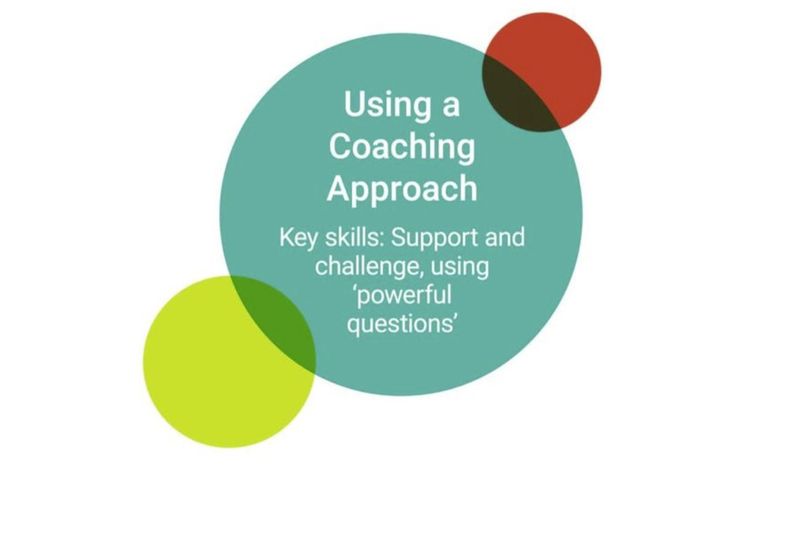Using a coaching approach
Coaching is… “unlocking a person’s potential to maximise their performance. It is helping them to learn rather than teaching them.”
- Sir John Whitmore, coaching pioneer, and author of ‘Coaching for Performance’ 2017
A coach is not required to have specific relevant experience or knowledge to share – they may not be a researcher or need to understand the discipline area or context of research to be able to effectively coach a researcher. They are coaching the person rather than the topic, so they do not need to know the technical details. In reality, as a research leader, you will have relevant knowledge, so it can be difficult to put that to one side and allow your team to make their own mistakes and find their own way. But it is worth using this approach.
Why use a coaching approach?
Through use of powerful questions and the range of skills a coaching approach will enable you to support your team in learning for themselves. This can be in conjunction with a mentor who may share specific insights and experience.
Look at these findings from a study by the International Coaching Federation:
Benefits of coaching
Reported positive changes in:
- Self-esteem/self-confidence 80%
- Relationships 73%
- Communication skills 72%
- Interpersonal skills 71%
- Work performance 70%
- Work/life balance 67%
Benefits of coaching for the organisation:
- Improved productivity
- Higher employee engagement
- Higher retention levels
- Allowing staff to take more responsibility and overcome obstacles
International Coaching Federation Global Coaching Client Study in 2009
The benefits are clear and each is likely to be something that you would want for yourself as well as the members of your research group.
Coaching or mentoring?
It is worth comparing coaching with mentoring as it is likely that you will be offering a mentoring approach.
“Mentoring is a supportive learning relationship between a caring individual who shares knowledge, experience and wisdom with another individual who is ready and willing to benefits from this exchange to enrich their professional journey."
- Suzanne Faure, Coaching and mentoring network
A mentor is usually someone who has done similar things to the person they are supporting but may have more experience to draw upon to help a junior colleague to learn. A mentor may well use many coaching skills and attributes such as powerful questions and active listening.
- Take a look at our download on Coaching skills and tools (pdf) for an exploration of techniques
When to use coaching
Remember that coaching approaches work well for topics that are open and subjective i.e. about management and self-management problems - for some technical or practical problems, the colleague may not yet be equipped to find their own answer. Use your judgement and listening skills to decide whether your colleagues are yet equipped to work things out for themselves.
Coaching skills
These resources will help you start developing and noticing your skills in these areas, which will undoubtedly have a positive impact on your team:
Coaching approaches - listening skills
Coaching approaches – questions
Powerful questions and the GROW model
- Download: GROW questions (pdf) to facilitate a coaching conversation It is recommended that you watch the coaching video on questions above before using the GROW model download.
- Download: Questioning and listening skills questionnaire (doc) The way in which we listen is related to many factors within our personality. This exercise is designed to help you identify your characteristic approach to listening and therefore become more aware of how that listening be more accurate and effective.
- If you would like to undertake an online coaching training module or book your own micro-coaching session then look at the College’s Coaching Skills for Managers resources.
Previous and next
Go back to the previous section: Support to enhance performance overview
Go to the next section: Providing recognition




